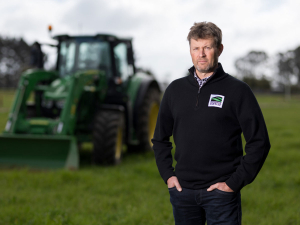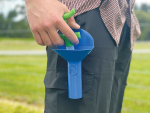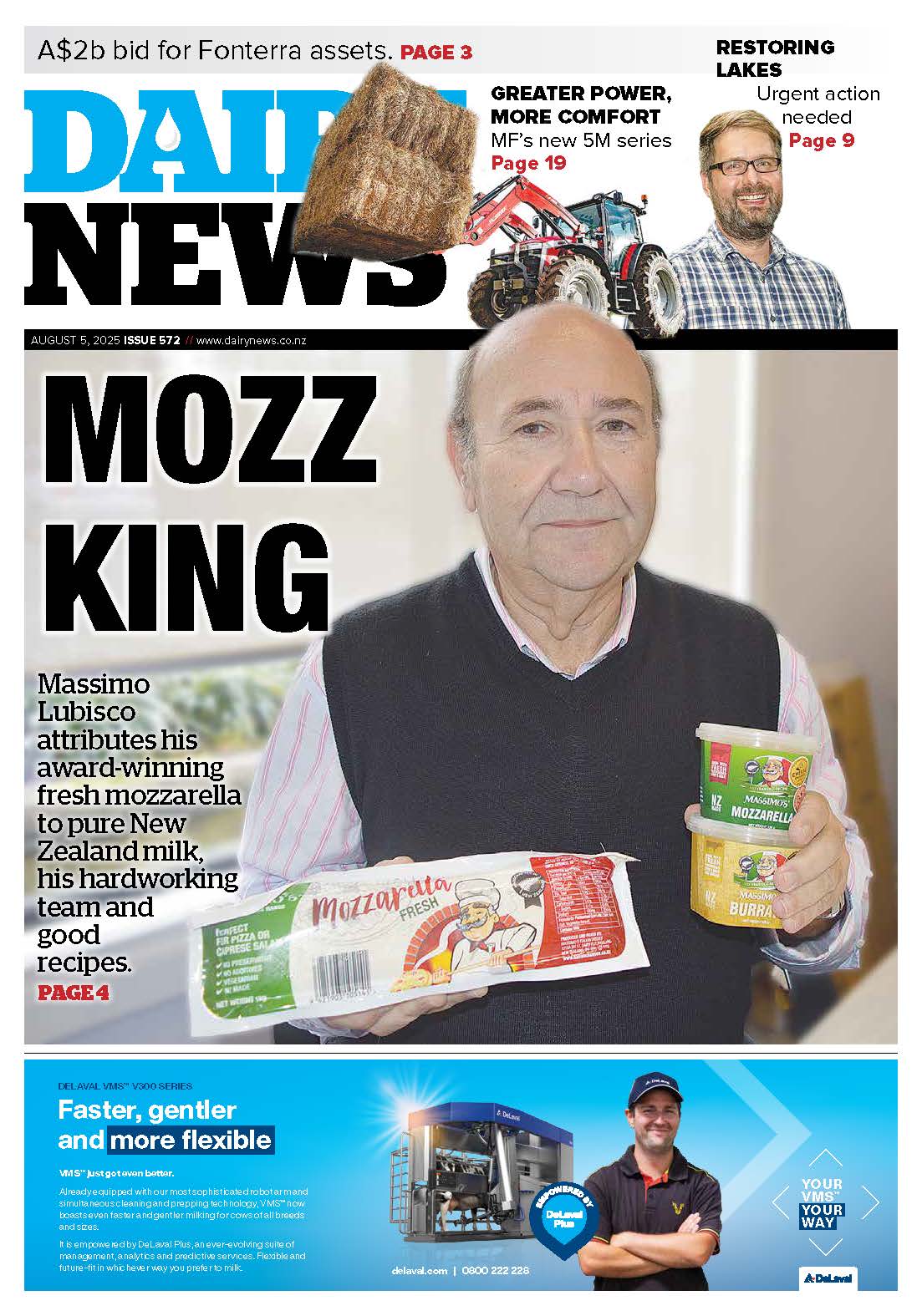“Normally you don’t give calcium to a cow pre-calving; it’s a no-no. However we didn’t normally feed fodder beet either, 10 years ago, so things are changing,” he said.
Norton was speaking at the Lincoln University Dairy Farm spring focus day, following LUDF’s first season of wintering the herd on fodder beet and silage, on the Silverwood support block near Hororata.
Outlining the farm’s mineral management through winter and spring, Norton said Canterbury soils are low in selenium, copper, iodine and a few other things, which could lead to animal health issues including retained membranes, goitre, reproductive effects and weak bones.
On the winter block, a low measured level of phosphorus in the fodder beet was supplemented by 50g/cow/day of DCP mixed in the silage. Both on the winter block and back on the farm, various minerals were added to the water by Dosatron.
Norton said that at calving, the bulk of the herd apart from some heifers had a very low incidence of retained membranes.
“That was either good luck or in and around mineral management. We only had less than 1% which as you know is very, very low.”
However, the milk fever rate was high, resulting in some deaths. Blood tests showed low levels of both calcium and phosphorus so DCP was added to the diet.
“Possibly more work is needed in this area. It’s becoming more common practice in Canterbury for people to use a lot of DCP in their springers if they’ve come off a fodder beet crop. So we started doing that at 100g a cow.”
Norton said the change seemed to work.
“It’s always hard to know, because we didn’t do half and leave half. We did the whole lot. But the bottom line is, the number of down cows dropped right away.”
In the meantime, they had also tested the silage and grass for DCAD (dietary cation anion difference) analysis. That affects the pH of the rumen and therefore mineral absorbtion. The pasture sample had a DCAD of 453 and the silage 310, giving an average of about 400. The target is less than 300 and ideally less than 200.
However, Norton said that by the time the DCAD analysis came back, the down cow incidence had dropped, presumably because of the DCP addition, so changing their diet for a lower DCAD was considered but not actioned.
Changes could be made for next season, he said, such as adding low DCAD feeds such as ryegrass hay and straw.
Norton said a dairy farm would never get no milk fever at all but ideally should never lose cows to the disorder.
“We are well up on that KPI and we’re not proud of that, so we’re hoping that next season we can just tweak the system a bit more.”
“I personally like hay but also I like biosecurity and I also like my farm looking nice and pure, and I know what hay’s going to do to that purity. You can end up bringing seed contamination onto your farm so I know hay’s a bit dodgy on a Canterbury farm.”
“But I do know hay works,” he said.
Asked if the low phosphorus levels in the springers suggested the 50g/day of DCP fed on the winter block was too low, Norton said there are a lot of unknowns about phosphorus but the winter rates could possibly be doubled or even trebled.
“We don’t actually know the whole metabolism for phosphorus. This is still a new area in terms of the introduction of fodder beet into our industry and we still don’t really know how it is impacting our skeletal reserves and what it’s doing to our bones,” he said.
















